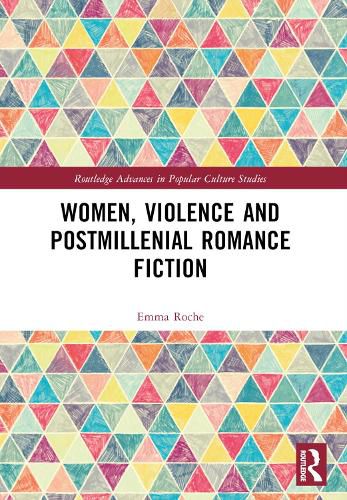Readings Newsletter
Become a Readings Member to make your shopping experience even easier.
Sign in or sign up for free!
You’re not far away from qualifying for FREE standard shipping within Australia
You’ve qualified for FREE standard shipping within Australia
The cart is loading…






This book interrogates the significance of the revival and reformulation of the romance genre in the postmillennial period. Emma Roche examines how six popular novels, published between 2005 and 2015 (Twilight, Fifty Shades of Grey, Gone Girl, Sharp Objects and The Girl on the Train), reanimate and modify recognisable tropes from the romance genre to reflect a neoliberal and postfeminist cultural climate. As such, Roche argues, these novels function as crucial spaces for interrogating and challenging those contemporary gender ideologies.
Throughout the book, Roche addresses and critiques several key attributes of neoliberal postfeminism, including a pervasive emphasis on individualism and personal responsibility; an insistent requirement for self-monitoring, self-surveillance, and bodywork; the celebration of consumerism and its associated pleasures; the prescription of mandatory optimism and suppressing one's 'negative' emotions; and the endorsement of choice as a primary marker of women's empowerment. While much critical attention has been devoted to those attributes and their pernicious effects, Roche argues that one crucial repercussion has been largely overlooked in contemporary cultural criticism: how these ideologies function together to effectively sanction gender-based violence. Thus, Roche exploits textual analysis to demonstrate the subtle ways in which neoliberal postfeminism can augment women's vulnerability to male violence.
$9.00 standard shipping within Australia
FREE standard shipping within Australia for orders over $100.00
Express & International shipping calculated at checkout
This book interrogates the significance of the revival and reformulation of the romance genre in the postmillennial period. Emma Roche examines how six popular novels, published between 2005 and 2015 (Twilight, Fifty Shades of Grey, Gone Girl, Sharp Objects and The Girl on the Train), reanimate and modify recognisable tropes from the romance genre to reflect a neoliberal and postfeminist cultural climate. As such, Roche argues, these novels function as crucial spaces for interrogating and challenging those contemporary gender ideologies.
Throughout the book, Roche addresses and critiques several key attributes of neoliberal postfeminism, including a pervasive emphasis on individualism and personal responsibility; an insistent requirement for self-monitoring, self-surveillance, and bodywork; the celebration of consumerism and its associated pleasures; the prescription of mandatory optimism and suppressing one's 'negative' emotions; and the endorsement of choice as a primary marker of women's empowerment. While much critical attention has been devoted to those attributes and their pernicious effects, Roche argues that one crucial repercussion has been largely overlooked in contemporary cultural criticism: how these ideologies function together to effectively sanction gender-based violence. Thus, Roche exploits textual analysis to demonstrate the subtle ways in which neoliberal postfeminism can augment women's vulnerability to male violence.